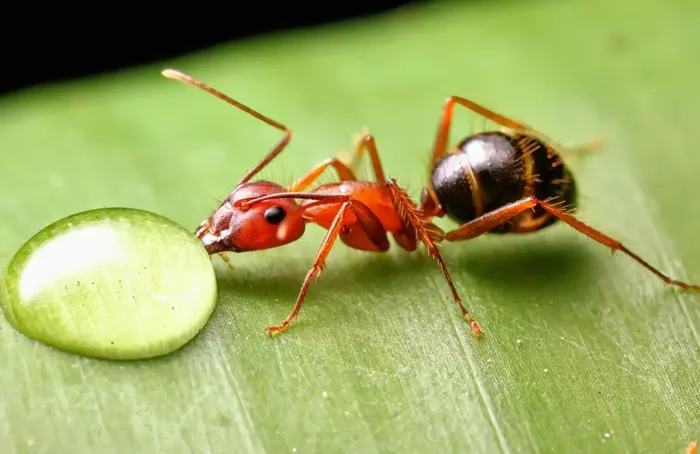Study Highlights Climate Change Risks to Insect-Plant Relationships.
A recent study reveals the potential negative effects of climate change on the mutualistic relationships between insects and plants. Mutualism, where both species benefit, is crucial for maintaining healthy ecosystems.
Researchers suggest that urbanization and rising temperatures may disrupt these relationships, which could threaten global biodiversity.
Focus on Ant-Plant Mutualism
Led by North Carolina State University, the study examined the mutualistic relationship between certain ant species and the tropical shrub Cordia nodosa. This plant offers shelter to ants in exchange for protection from herbivores.
The team compared these relationships at five urban sites and five protected forest areas in South America. A key goal was to determine how the ant species found on urban plants differed from those in forest environments, especially regarding their heat tolerance, a significant factor in urban areas.
The researchers found that urban plants mainly hosted opportunistic ants that did not specialize in defending Cordia nodosa. While these urban ants were more heat-tolerant, they were not effective at protecting the plants. In contrast, specialized mutualistic ants, which form strong protective bonds with the shrubs, remained common in forest areas.
Decline of Ant Protection in Urban Areas
One notable finding was that urban ants typically failed to defend Cordia nodosa plants from threats. Researchers simulated attacks by flicking the plants and discovered that the opportunistic urban ants hardly reacted, living up to their name. In forest areas, however, the mutualistic ants were 13 times more likely to respond to protect the plants.
Interestingly, despite the lack of defense from urban ants, plants in cities were not as heavily affected by herbivores as expected. Damage from plant-eating insects, known as herbivory, was relatively low in urban areas.
“I think that probably the herbivores themselves are not doing great in the city, whether it’s because of habitat fragmentation, the temperature, or whatever’s keeping those specialist ants out may also be keeping the herbivores out,” said Elsa Youngsteadt, an associate professor of applied ecology at NC State. She also noted that urban plants might have developed alternative defenses to compensate for the absence of ant protection.
Urbanization and Ant-Plant Relationships
In contrast, forest plants without protective ants showed higher rates of herbivory, aligning more with expectations. The research confirmed a distinct urban heat island effect, indicating that urban areas are about 1.6°C warmer than forest regions.
This temperature increase is related to the heat tolerance of the ants, as urban ants were better suited for warmer conditions than their forest counterparts. However, the long-term effects of these changes are still unclear. “While this study provides a small snapshot of what we may expect in the future with global change, many questions remain unanswered,” said study co-author Professor Sara Prado.
The research raises concerns about how these changes might impact ecosystems on a larger scale if similar patterns emerge in forest environments.
Future of Specialized Mutualisms
The study’s findings underscore the vulnerability of specialized mutualistic relationships in the face of climate change. If urban environments can no longer support the mutualistic ants that protect Cordia nodosa and other plants, we may witness shifts in the dynamics of insect-plant relationships.
“If these changes also play out in forests in the future, we may see more specialized mutualistic interactions changing or disappearing altogether,” said Professor Prado.
Moreover, if urban plants no longer require ants for protection, researchers are left to consider the long-term implications of being colonized by opportunistic ants. The impact on herbivores is also a concern. If herbivores are also kept out by the same factors affecting specialized ants, it could signify a significant shift in urban ecosystem dynamics.
Implications for Global Ecosystems
This study provides insight into how climate change and urbanization might disrupt essential symbiotic relationships that underpin many ecosystems. The findings stress the need for continued research into how these changes affect not just individual species but the broader ecological networks they sustain.
As the planet warms and urban areas expand, the consequences for specialized insect-plant relationships remain uncertain. Nevertheless, this research serves as a warning about the potential breakdown of mutualistic interactions vital for preserving biodiversity and ecosystem health.
The study calls for ongoing monitoring and conservation efforts to protect these relationships in a changing world. It is published in the journal Ecology.
Related topics:
- Southern California School Grows ‘Moon Tree’ from Seeds Sent to Space
- New Technology Aims to Boost Crop Yields and Enhance Plant Resilience
- Invasive Plants: Harmful to Your Garden and the Environment


